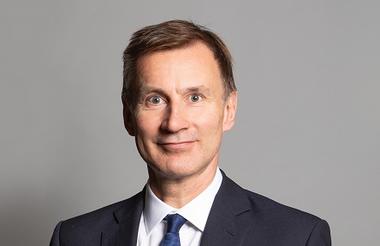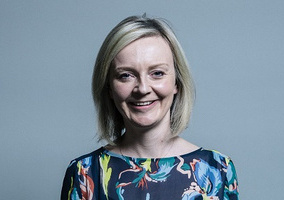Charity sector organisations have shared concerns over chancellor Jeremy Hunt’s emergency statement, which effectively reversed many of the measures of his predecessor’s recent “mini-budget”.
Hunt announced that the basic rate of income tax, which former chancellor Kwasi Kwarteng said last month would reduce to 19%, will now remain at 20% “until economic conditions allow for it to be cut”.
He announced a Treasury-led review to consider how to support households and businesses with energy bills after April 2023, which aims to “design a new approach that will cost the taxpayer significantly less than planned whilst ensuring enough support for those in need”.
It is not yet clear how this affects the government’s current review, for which charities are being asked to submit their views.
The government will no longer cut dividends tax by 1.25 percentage points from April 2023, nor will it repeal the 2017 and 2021 reforms to off-payroll working rules.
Hunt also said that government departments will be asked to find efficiencies within their budgets.
CFG: Cuts to local government could have ‘profound implications for charities’
Richard Sagar, head of policy at the Charity Finance Group, said: “The new chancellor has largely undone his predecessor's mini-budget. Retaining the basic rate of income tax at 20% will mean that Gift Aid transitionary relief is not applicable, and reversing changes to IR35 will mean that any minor reductions to administration for charities will not occur.
“But these changes are insignificant compared to the potential cuts to government spending that are hinted at in his statement. It would be catastrophic for those on low incomes if benefits are not raised in-line with inflation, and if hard-pressed council budgets are cut to unsustainable levels this has profound implications for charities and the people they serve.
“There's a tipping point where efficiency savings become cuts to core services and support for those most in need. At CFG we are particularly concerned about the impact on local government, which commissions so many essential community and personal services. We're calling for an immediate uplift in welfare benefits to help those in greatest need here in the UK.
“For many people, the most immediate blow will be the new uncertainty about their future energy bills, with the news that universal support will end in April 2023. The human impact of stress is appalling, and the impact on charitable and public services is also significant. That anxiety and financial strain will undoubtedly increase demand for support from charities, especially those working on debt advice and mental health.
“We look forward to hearing more information about any changes to the Energy Bill Relief Scheme: the sooner we have details of the review by Treasury, the information that will help them understand the needs of charities, and how we can ensure charities receive support, the better.”
NCVO: Charities delivering public services ‘already underfunded’
Sam Mercadante, NCVO's policy and insight manager, said: “In the face of continuing rising inflation, households and charities alike are facing a difficult and uncertain winter.
“The government must prioritise stability and certainty in the months ahead and cannot leave it until March for people and organisations to find out what they will be paying for energy on 1 April.
“It will be critical to make sure that everyone who is disproportionately impacted by rising costs is supported, and government should draw on charities' expertise to do this quickly and effectively.
“We are also concerned about the impact of potential reductions in public spending. Where charities are delivering public services, their contracts are already underfunded and are not keeping up with inflation. This makes it very difficult to provide the right support for communities, and exacerbates the challenges that people are already facing.”
NPC: Clarity on future of energy scheme needed
Dan Corry, chief executive of NPC, said: “It’s good to see the government trying to get a grip – so much uncertainty and surging interest rates are no good for anyone.
“But we’re worried to see cuts being signalled to already stretched public services at a time when so many are relying on them.
“The proposed new approach to the Energy Price Guarantee to target those most in need after April this year is welcome, but must be clarified as soon as possible to end the worry and uncertainty only six months of support is causing people.”
Related Articles












